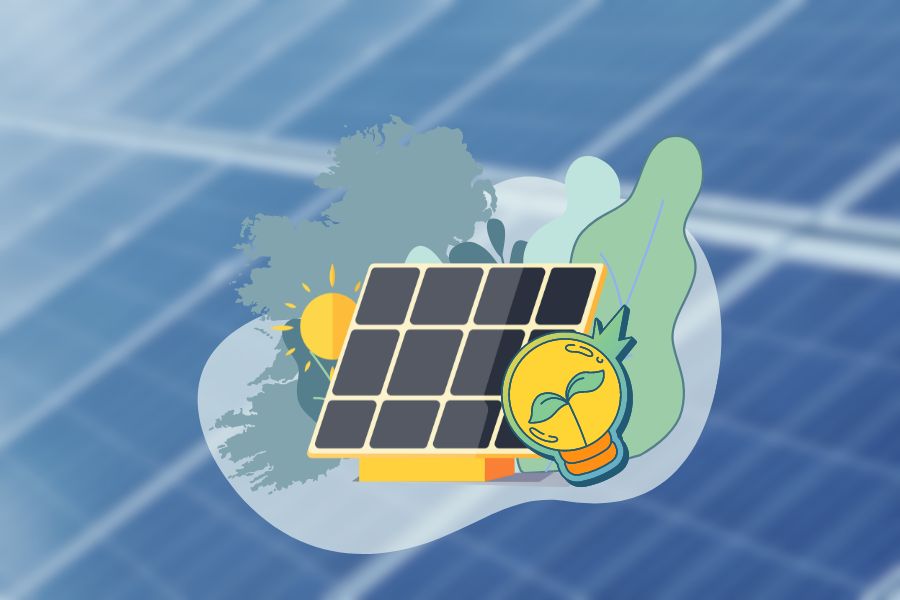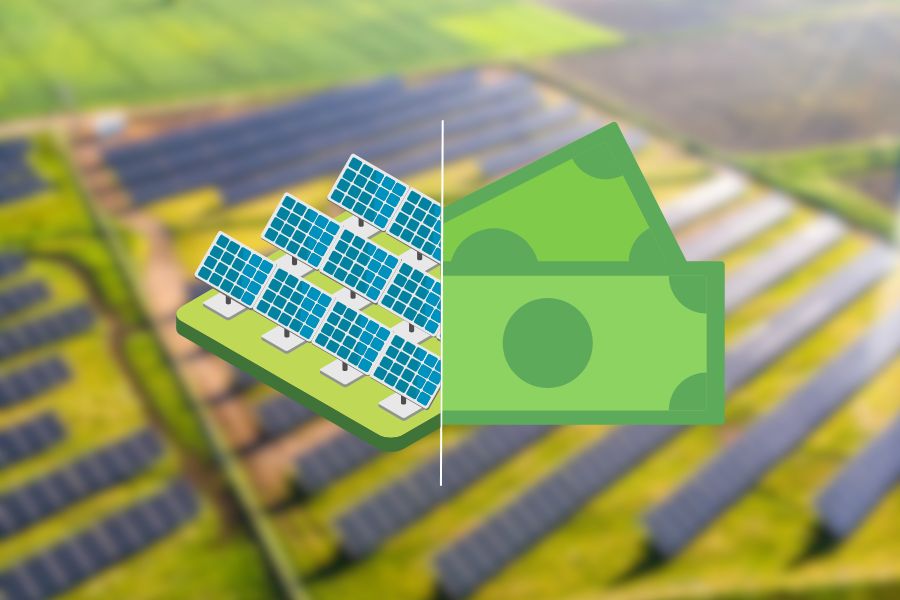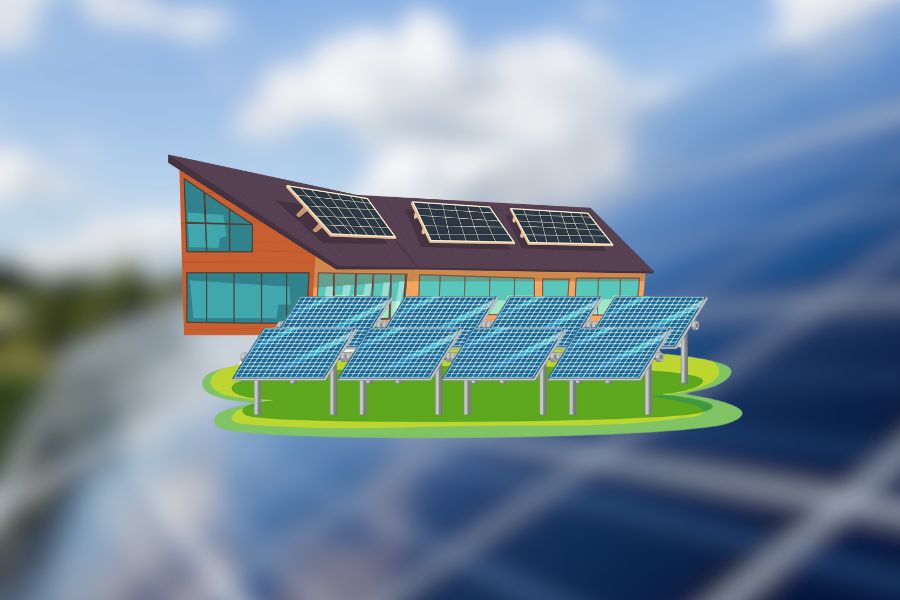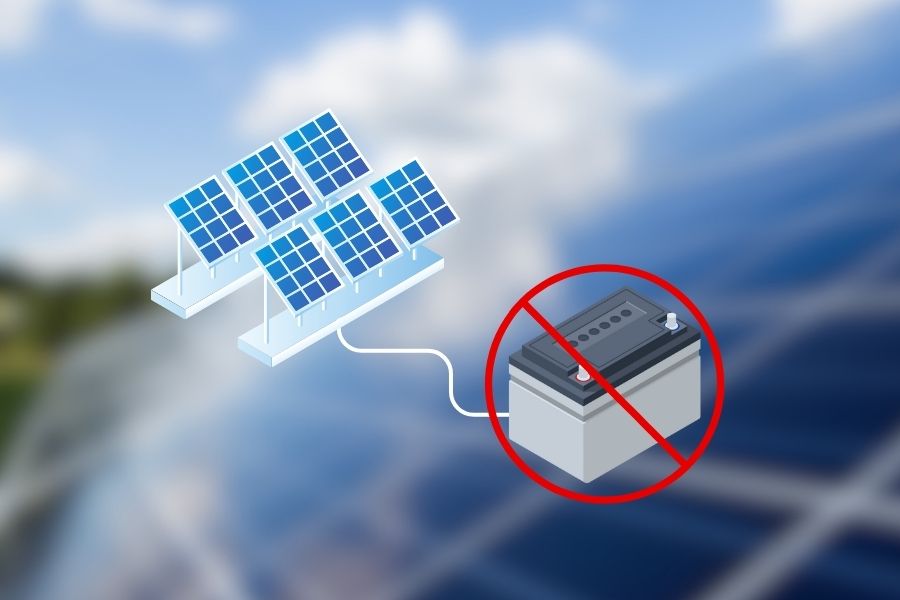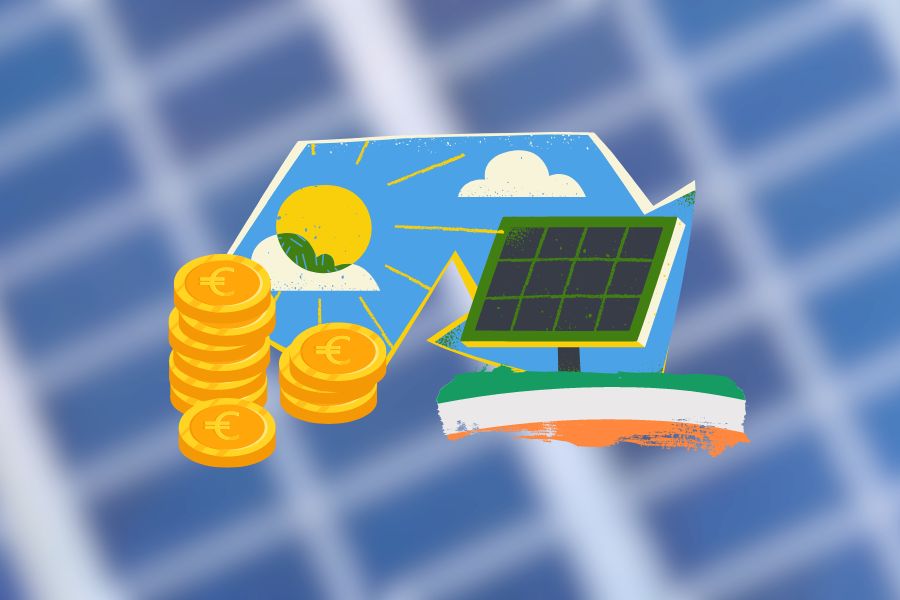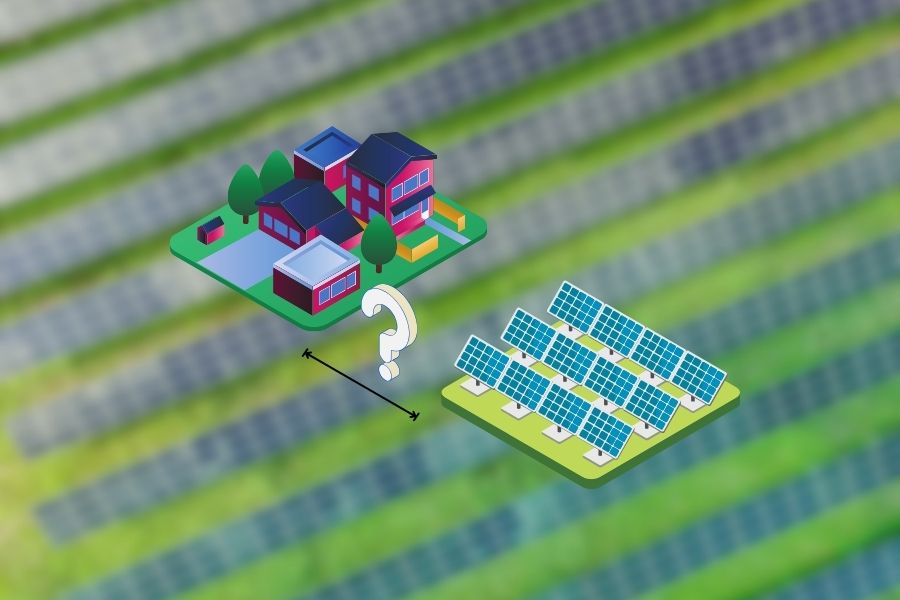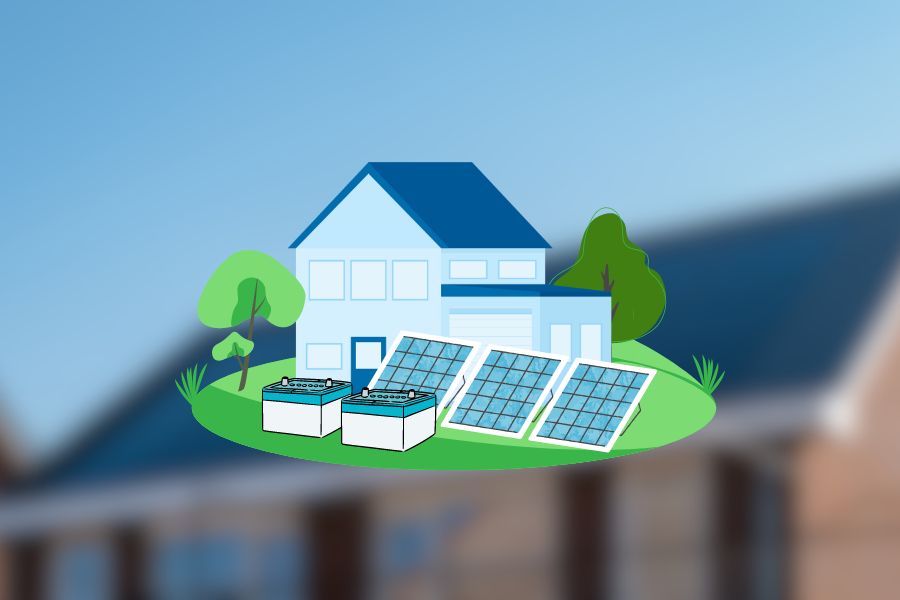Solar panel viability in Ireland’s often-cloudy climate hinges on several factors, including local weather patterns, government incentives, and potential obstacles.
Through real-life examples and benefits, we assess if harnessing solar power can be an effective renewable energy solution in the Emerald Isle.
This article delivers an immediate, comprehensive understanding of solar panels’ potential and worthiness in Ireland.
Solar Energy Potential in Ireland
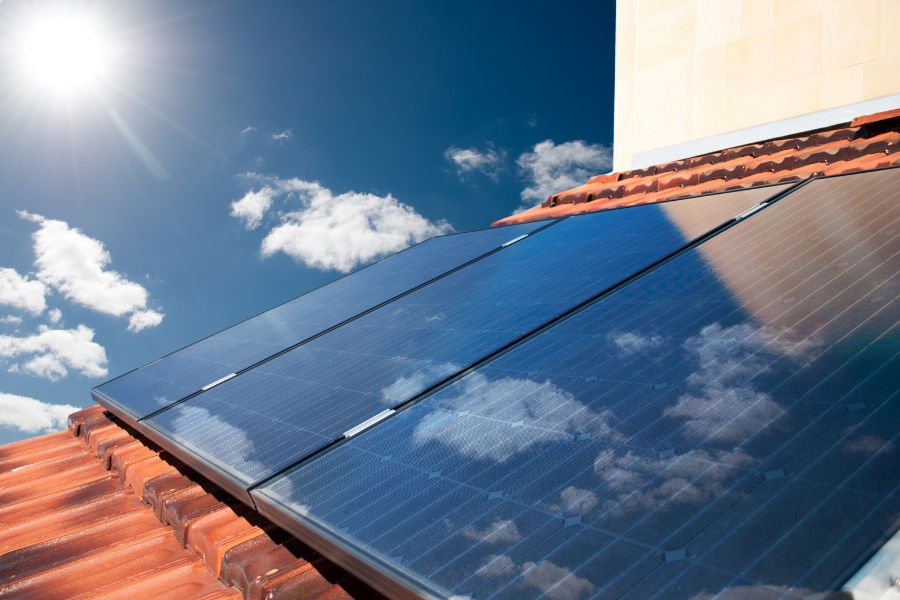
Despite Ireland’s reputation for rainy weather, the country still possesses solar energy potential. With favorable government policies, incentives, and increasing demand for renewable energy, solar power is gradually gaining momentum as a viable option for sustainable energy generation in Ireland.
1. Climate and Weather Conditions in Ireland
Regarding solar energy potential, Ireland’s climate and weather conditions play a significant role. As a country known for its rainy weather and overcast skies, some may question if solar panels can generate enough electricity to make them worth it.
Ireland experiences a temperate maritime climate characterized by mild winters and cool summers. Rainfall is typical throughout the year, with cloud cover often reducing the amount of direct sunlight reaching the ground.
These weather conditions can affect the efficiency of solar panels, as they rely on sunlight to generate electricity.
2. Solar Radiation and Daylight Hours in Ireland
Despite Ireland’s reputation for being cloudy and rainy, the country still receives a considerable amount of solar radiation.
Based on data from the Sustainable Energy Authority of Ireland (SEAI), a home solar PV system with a size of 20 sq. m (~3kW) and located optimally could generate approximately 2,600kWh of electricity annually.
It may be lower than other sunnier regions, but it still presents a viable opportunity for solar energy generation.
Additionally, daylight hours in Ireland vary depending on the season. During the summer, Ireland experiences longer daylight hours, which can increase the potential for solar energy production.
However, during the winter months, daylight hours are shorter, which may impact the efficiency of solar panels.
3. Government Incentives and Policies Supporting Solar Energy in Ireland
The Irish Sustainable Energy Authority has implemented various incentives and policies to support the growth of solar energy in the country. It is worth considering solar panels in Ireland, especially when grants are available for solar panels.
One of the key initiatives is the Support Scheme for Renewable Heat (SSRH), which provides financial support to businesses and homeowners who install solar thermal panels for heating purposes.
There are also plans to introduce a new Renewable Electricity Support Scheme (RESS) to increase the share of renewable energy in Ireland’s electricity mix.
Furthermore, Ireland has set renewable energy targets under the European Union’s Renewable Energy Directive, which requires the country to achieve 16% of its final energy consumption from renewable sources by 2030.
This commitment to renewable energy has created a favorable policy environment for solar energy development in Ireland.
Comparison with Other Renewable Energy Sources in Ireland
Solar energy is one of the renewable sources considered in Ireland’s transition to a greener future. Other sources such as wind, biomass, and hydropower also play a significant role in Ireland’s renewable energy mix.
Wind energy, in particular, has been a dominant renewable energy source in Ireland, with the country having good wind resources.
However, solar energy has gained traction recently, with increasing installations and government support.
Benefits of Solar Panels Ireland
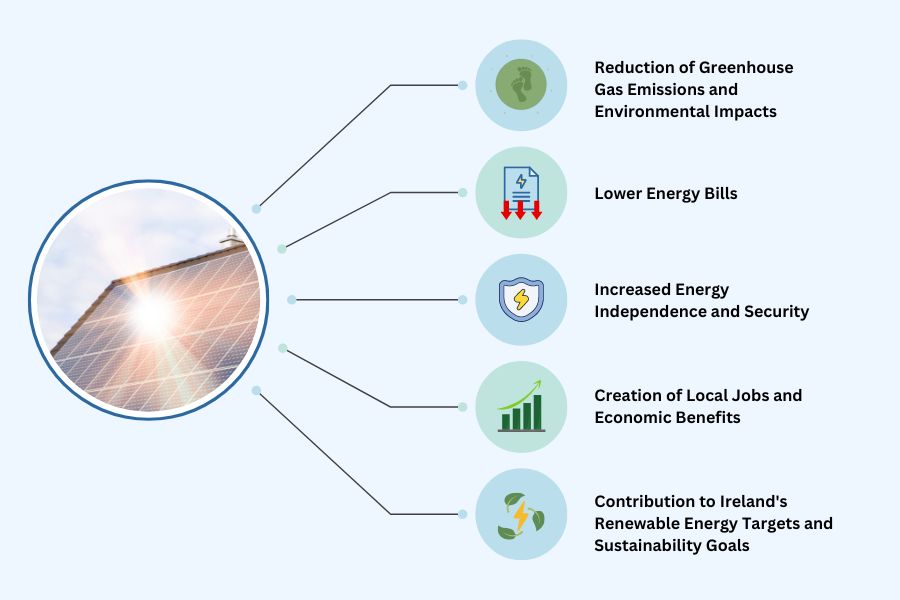
Solar panels in Ireland can offer numerous benefits, including:
1. Reduction of Greenhouse Gas Emissions and Environmental Impacts
Solar energy is a clean and renewable source of power that does not produce harmful greenhouse gas emissions, unlike fossil fuels. By installing solar panels, Ireland can reduce its carbon footprint and contribute to global efforts to combat climate change.
Furthermore, solar panels installed have a minimal environmental impact, as they do not generate air or water pollution and do not require any fuel extraction or transportation.
2. Lower Energy Bills
Solar panels generate electricity from sunlight, which can offset the need to purchase electricity from the grid.
It can result in lower electricity bills over time and surplus electricity, allowing homeowners and businesses to save on their energy expenses and increase their affordability.
3. Increased Energy Independence and Security
Solar energy systems can provide greater energy independence and security for Ireland. Solar panel owners can rely less on external energy sources by generating electricity on-site, reducing their vulnerability to energy price fluctuations or supply disruptions.
It can enhance Ireland’s energy security and reduce its dependence on imported fossil fuels.
4. Creation of Local Jobs and Economic Benefits
Installing, maintaining, and operating solar panel systems can create local jobs and stimulate economic growth. The solar energy sector has the potential to generate employment opportunities in the manufacturing, installation, operation, and maintenance of solar panels.
It can contribute to local economies, boost job creation, and support Ireland’s transition to a green economy.
5. Contribution to Ireland’s Renewable Energy Targets and Sustainability Goals
Ireland has set renewable energy targets and sustainability goals under national and international agreements. Solar panels can help Ireland achieve these targets by diversifying its energy mix and increasing the share of renewable energy in its overall energy consumption.
It can support Ireland’s commitment to sustainable development, reduce its reliance on fossil fuels, and promote a greener future.
Challenges and Considerations
While solar panels offer significant benefits, it is crucial to address some challenges and considerations, including:
1. Upfront Costs and Return on Investment (ROI)
The initial cost of installing solar panels in Ireland can be a barrier for many homeowners and businesses. The upfront investment for purchasing and installing solar panels can be considerable.
The return on investment (ROI) may vary depending on energy usage, location, and available incentives.
An important consideration is ensuring that the costs associated with solar panel installation are manageable and that the potential ROI is feasible.
2. Maintenance and Durability in Irish Weather Conditions
Ireland’s weather conditions, characterized by frequent rain and overcast skies, may affect the performance and durability of solar panels.
Regular maintenance, including cleaning, inspection, and potential repairs, may be required to ensure optimal performance of solar panels in Irish weather conditions.
Proper planning for maintenance and consideration of panel durability in local weather conditions is crucial for the long-term performance of solar panels.
3. Grid Connection and Export Tariffs
Connecting solar panels to the grid and navigating export tariffs can be challenging in Ireland.
Grid connection requirements, including technical specifications, permits, and approvals, may vary depending on the location and size of the solar panel installation.
Additionally, export tariffs, which determine the compensation for excess electricity fed back to the grid, may impact the financial viability of solar panel installations.
Understanding and complying with grid connection requirements and export tariffs is essential when considering solar panel installations in Ireland.
4. Regulatory and Planning Requirements
Regulatory and planning requirements, including building permits, planning permissions, and compliance with building codes, may be necessary for solar panel installations in Ireland.
These requirements can add complexity and time to the installation process. One must consider them when planning and budgeting for solar panel projects.
5. Affordability and Accessibility for Different Socio-Economic Groups
The affordability and accessibility of solar panels may vary among different socio-economic groups in Ireland.
While solar panels can provide long-term cost savings, the upfront solar panels’ cost may be prohibitive for some households or businesses, particularly those with limited financial resources.
Ensuring that solar panels are accessible and affordable for different socio-economic groups is vital for promoting equitable access to renewable energy in Ireland.
Are Solar Panels Worth It In Ireland? Our Honest Opinion
Yes, solar energy is worth it in Ireland, and I will continue to recommend it to any homeowner in Ireland. The main reason is that it can significantly reduce your energy bills.
By installing solar panels, you can save substantial money and fully repay your investment in just a few years! But remember, to evaluate whether solar panels are a good investment, you need to determine how many solar panels you need. It’s also worth considering how solar panels could increase your home value.
Moreover, if you are eligible for a grant, it makes solar panels even more financially viable.
Solar PV Panels or Solar Thermal Panels – Which One Has More Worth in Ireland
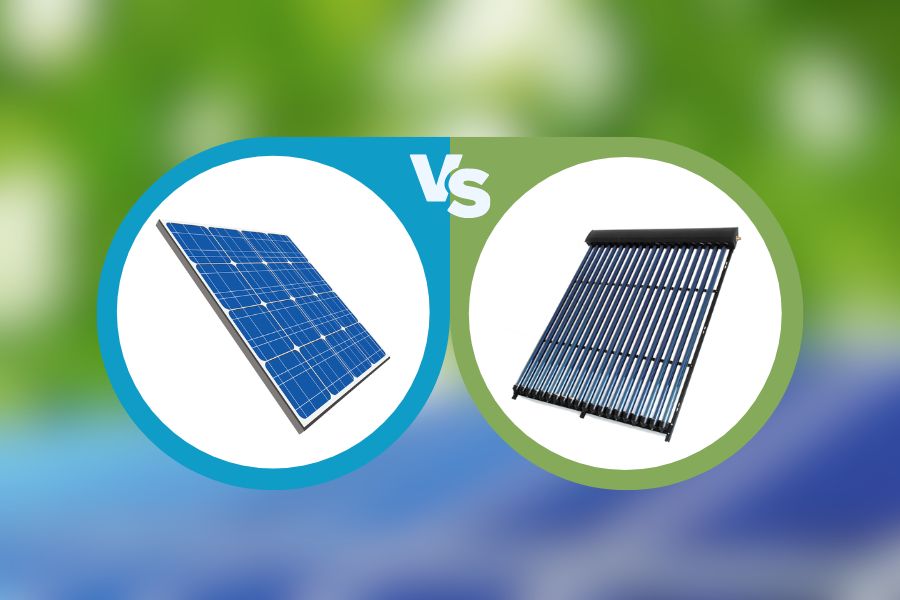
Solar energy is a popular renewable energy option that one can harness in two ways: solar PV (photovoltaic) panels or solar thermal panels. Both solar panel systems capture energy from the sun, but they serve different purposes and have distinct advantages and applications.
Information About Solar PV Panels
- Solar PV panels convert sunlight into electricity using a semiconductor material that generates an electric current when exposed to sunlight.
- Solar PV panels power homes, businesses, and other electrical appliances.
- One can install solar PV panels on rooftops or in open areas with good sunlight exposure.
- Solar PV panels are highly versatile and can generate electricity even on cloudy days.
- Solar PV panels have a longer lifespan and require minimal maintenance.
Information About Solar Thermal Panels
- Solar thermal panels directly capture sunlight to heat water or other fluids in heating systems.
- Solar thermal panels help in domestic hot water, space, and swimming pool heating.
- Solar thermal panel installation happens on rooftops or other suitable areas with good sunlight exposure.
- Solar thermal panels capture and store heat more efficiently than solar PV panels.
- Solar thermal panels require regular maintenance, such as cleaning and anti-freeze replacement.
Solar photovoltaic panels are primarily used for generating electricity, while solar thermal panels help in heating applications.
The choice between solar PV and thermal panels depends on a property or project’s specific energy needs and requirements. Understanding how much energy a solar panel can produce in Ireland is critical to evaluating its worth.
Consulting with a qualified professional and considering factors such as energy goals, available space, and budget can help determine the most suitable option for harnessing solar energy.
Frequently Asked Questions
Are There Grants Available for Solar Panels in Ireland?
Yes, grants are available for solar panels in Ireland through the Better Energy Homes Scheme, which provides financial incentives to homeowners for energy upgrades, including solar panels.
Do I Need Planning Permission for Solar Panels in Ireland?
In Ireland, solar panels typically only require planning permission if homeowners install them in a protected structure or a designated conservation area.
Conclusion
Despite Ireland’s variable weather conditions, solar panels can be a worthwhile investment in Ireland. While their performance may be affected by cloud cover and shading, they can still generate electricity and save homeowners on their energy bills.
With the availability of grants and the generally low maintenance requirements, solar panels can be a viable and environmentally friendly option for homeowners in Ireland looking to harness solar energy.
